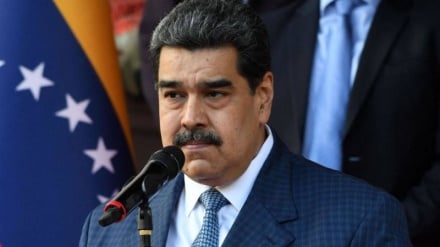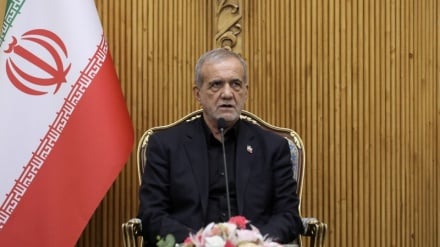A glance at speedy global de-dollarization/ Dollar US' main weapon
Pars Today- In the wake of various countries' effort to confront the US unilateral policies, dollar was omitted from Iran-Russia transactions. Iran's parliament speaker, Mohammad Baqer Qalibaf, said that all transactions between Iran and Russia are done without dollar, stressed, "The reason for omission of dollar in transactions is to encounter the American unilateral policies."
During the recent years, the policy of de-dollarization in the global dealings has been taken into account by many countries, especially those who are suffering from the cruel financial sanctions imposed by the US. In view of this, Pars Today reports that many countries in various parts of the world have considered first to omit dollar in bilateral transactions and then spread it to broader arenas with the help of other currencies. In other words, the US' exploitation of dollar as a financial weapon has accelerated de-dollarization policy and caused many countries to diversify investments with alternative currencies. The US sanctions against Russia after the outbreak of the Russian special operation in Ukraine, has expedited the trend of de-dollarization by more countries.
Formation of various economic complexes to cooperate on de-dollarization
To accelerate and increase regional cooperation among countries and to pursue de-dollarization policy, many economic unions and groups have been shaped during the recent years in a bid to use alternative currencies. The member states of Eurasia Economic Union (EEU) can be mentioned, in this regard, which have decided to omit the US dollar completely from all their commercial and financial transactions. The BRICS member states, too, are seeking to materialize this issue, as one of the most important goals of foundation of this group was to pursue the policy of omit dollar in all transactions. According to the statistics, Russia and China are doing nearly %70 of their economic exchanges with their national currencies. In Latin America, Brazil is pursuing de-dollarization movement. South Africa, as another member of BRICS, is actively promoting this view in Africa. Russia and Iran have also omitted dollar from their transactions.
Decrease of dollar share in international trade
According to the data related to the official currency composition of currency reserves published by the International Monetary Fund (IMF), the share of dollar in the global reserves has been dwindled and reached nearly %58 in recent years, while it was %66 in 2003. IMF Managing Director, Kristalina Georgieva, referring to the ongoing trend to abandon the US dollar in the world, said, "The movement to reduce dependence on dollar has been accelerated for the recent years because different countries are seeking to end their economic dependence on the US." The US' usage of dollar to pressure other countries through financial and political sanctions has been a constant policy of the White House in the international arena. Using this policy, particularly during the recent years, to exert pressure on other countries, has urged them to further separate their economy from dollar. A while ago, the US banking strategist, Michael Hartnett, warned in this regard that turning dollar into a weapon can lead to devaluation of it. Presently, even the US allies are planning to decrease dependence on dollar. A while ago, the French President, Emanuel Macron, warned that Europe should not dependent on the trans-territoriality of dollar and, without strategic independence, Europe will be at the risk of omission from history.
Yuan gains power against dollar
One of the most important currencies used in the present international trade is Yuan of China. Currently, a major part of the Russia-China trade is being done with yuan. In view of this, Sputnik website announce in a report quoted from the Russian Deputy Prime Minister, Alexei Overchuk, "The volume of Russia-China trade has increased %92 and the most of the commercial agreements have been cleared with the currencies of the two countries – Russian ruble and Chinese yuan. According to the report, the trade balance of the two countries is on the rise and with an increase of more than %26 in 2023, has surpassed $240 billion. Lee Tee Wan, specialist in international affairs, says in this respect, "Among the indexes of development of regional cooperation, is to use national currencies in which China is the pioneer and it has concluded agreements on trade exchanges with more than 100 countries to use national currencies."
De-dollarization continues
Although a big bulk of the global trade is being done with dollar and Washington wields this as a lever of pressure to deal blows to the rival and hostile countries, this issue has turned into a serious challenge for Washington. Diversity of currencies of countries will put an end to the hegemony of dollar in the world. This will decrease the US power. Thus, many domestic experts have warned Washington about not using dollar as an instrument. Alasdair Macleod, financial specialist, says, "The United States applies dollar as a weapon. The US knows that the international financial system has no alternative for dollar, yet. Thus, it abuses the issue. Niall Ferguson, Irish historian and professor of Harvard University, warned in this regard, "The US is facing decline of supremacy in the world as it had been experienced by Spain, France and Britain."
Key phrases: de-dollarization, BRICS group, international financial system, US dollar, International Monetary Fund, US financial sanctions
RM/ME



